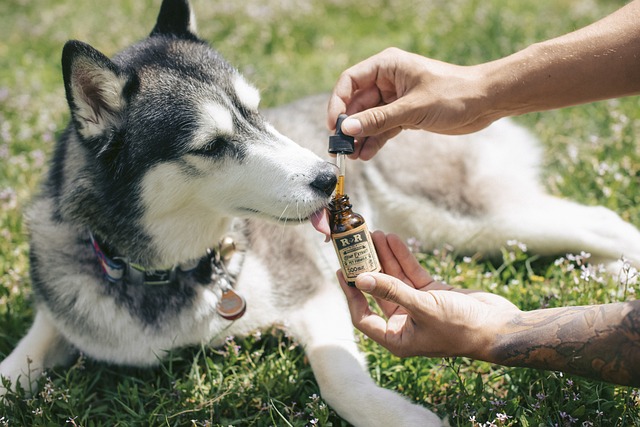In the booming CBD market, Heavy Metals Testing (HMT) is paramount for product safety and consumer protection. Advanced methods like ICP-MS detect trace elements of heavy metals like lead, mercury, and cadmium in oils and tinctures. HMT prevents contamination from cultivation to extraction, meeting stricter regulations and maintaining industry trustworthiness. Top manufacturers integrate this step for high-quality, pure CBD, ensuring consumer health, market transparency, and legal compliance. Regular HMT is crucial for competitive advantage and fostering customer loyalty.
Heavy metals testing is an essential component of quality assurance for CBD products, ensuring consumer safety and product efficacy. This article delves into the significance of heavy metal detection in CBD, covering topics like understanding the process, its crucial role, impact on product safety, common sources in extraction, accurate detection methods, regulatory considerations, and best practices. By exploring these aspects, we highlight the importance of heavy metals testing as a game-changer in the CBD industry.
Understanding Heavy Metals Testing in CBD Products

In the realm of CBD (Cannabidiol) products, ensuring quality and safety is paramount. One critical aspect of this process involves Heavy Metals Testing. This procedure plays a vital role in guaranteeing that CBD oils, tinctures, and other derivatives are free from potentially harmful trace elements like lead, mercury, and cadmium. Given the growing popularity of CBD as a health supplement, implementing rigorous heavy metals testing standards has become essential to protect consumers.
Heavy Metals Testing for CBD products is a meticulous process designed to identify and quantify any presence of these toxic substances. Advanced analytical techniques, such as Inductively Coupled Plasma Mass Spectrometry (ICP-MS), are employed to detect even minuscule levels of heavy metals. This rigorous testing not only safeguards the health of consumers but also establishes the industry’s trustworthiness by adhering to stringent quality assurance standards.
Why is Heavy Metals Testing Crucial for CBD Quality Assurance?

Heavy metals testing is a critical component of CBD quality assurance due to the potential presence of these elements in cannabis-based products. While CBD itself is non-toxic, heavy metals like lead, mercury, and arsenic can contaminate the plant during cultivation or extraction processes, posing significant health risks to consumers. These metals are often invisible to the naked eye and require specialized testing methods to detect and quantify their levels.
The stringent regulations surrounding CBD products necessitate rigorous quality control measures, including comprehensive heavy metals testing. High-quality CBD manufacturers prioritize this step to ensure their products are safe for consumption and meet the strictest standards. By eliminating or minimizing heavy metal contaminants, they protect consumers from potential adverse effects and maintain the purity and integrity of their CBD offerings.
The Impact of Heavy Metals on CBD Product Safety and Efficacy

In the realm of CBD product safety and efficacy, heavy metals testing for CBD is a paramount concern. Heavy metals, such as lead, mercury, and arsenic, can contaminate CBD oils during production or extraction processes, posing potential health risks to consumers. These metals are often unseen and undetectable by taste or smell, making them insidious contaminants that can adversely affect the overall quality of CBD products.
Regular heavy metals testing is crucial for maintaining high standards in Quality Assurance (QA). By implementing rigorous QA protocols that include thorough heavy metals screening, manufacturers can ensure their CBD products meet safety regulations and deliver on their therapeutic promises. This proactive approach not only safeguards consumer health but also builds trust and transparency, fostering a vibrant and responsible CBD industry.
Common Sources of Heavy Metals in CBD Extraction Processes

The process of extracting CBD from hemp or cannabis plants involves various methods, and unfortunately, some of these can introduce heavy metals into the final product. Heavy metals testing for CBD is a crucial step in ensuring product safety and quality. Common sources of heavy metal contamination include outdated or improperly maintained extraction equipment, such as contaminated stainless steel vessels or filters. These metals can leach into the CBD oil during the extraction process, especially if the equipment has not been properly sanitized.
Another significant source is the raw plant material itself. Certain types of soil and water used to grow cannabis can naturally contain elevated levels of heavy metals like lead, mercury, and cadmium. If these metals are present in the plants, they will be extracted along with the CBD during the process, posing potential health risks to consumers. Therefore, implementing rigorous testing protocols for heavy metal content is vital to guarantee the purity and safety of CBD products on the market.
Standardized Methods for Accurate Heavy Metals Detection

In the realm of CBD (Cannabis Sativa) production, ensuring product safety and quality is paramount, especially when it comes to heavy metals testing for CBD. Standardized methods for accurate heavy metal detection play a crucial role in this process, as they enable manufacturers to consistently meet stringent regulatory standards. These methods employ advanced analytical techniques such as Inductively Coupled Plasma Mass Spectrometry (ICP-MS) and Atomic Absorption Spectroscopy (AAS), which offer exceptional sensitivity and precision in identifying trace amounts of heavy metals like lead, mercury, and cadmium.
Standardized protocols ensure that every batch of CBD products is thoroughly tested, minimizing the risk of contamination and ensuring consumer safety. This meticulous approach to heavy metals testing for CBD is a game-changer, fostering trust among consumers and solidifying the industry’s commitment to producing high-quality, pure, and safe cannabidiol-based goods.
Regulatory Considerations for Heavy Metals Testing in CBD

In the rapidly growing CBD industry, ensuring product safety and quality is paramount. One critical aspect often overlooked is Regulatory Considerations for Heavy Metals Testing in CBD products. Given the potential health risks associated with heavy metals contamination, adhering to stringent testing standards is essential. Regulations vary across regions, but many countries mandate rigorous testing for heavy metals like lead, mercury, and arsenic in dietary supplements, including CBD oils, capsules, and edibles.
Manufacturers must implement robust Quality Assurance (QA) protocols that incorporate Heavy Metals Testing for CBD as a core component. This involves utilizing advanced analytical techniques such as Inductively Coupled Plasma Mass Spectrometry (ICP-MS), which offers high sensitivity and precision in detecting trace amounts of heavy metals. Regular testing not only safeguards consumer health but also builds trust among customers, ensuring compliance with legal requirements and maintaining the integrity of the CBD market.
Best Practices for Ensuring High-Quality CBD Products through Metal Testing

Ensuring the quality and safety of CBD (Cannabidiol) products is paramount, especially as the market continues to grow. One critical aspect often overlooked but crucial for maintaining high standards is Heavy Metals Testing for CBD. This process involves rigorous analysis to detect and minimize any trace elements of heavy metals like lead, mercury, and cadmium that may contaminate the product during extraction or manufacturing. Best practices include implementing stringent quality control measures at every production stage, from raw material sourcing to final packaging. Regular, independent laboratory testing is essential to verify the absence of heavy metals, ensuring consumers receive a pure and safe CBD product.
Additionally, maintaining detailed documentation of each step in the production process helps track potential sources of metal contamination. This includes record-keeping of suppliers, extraction methods, and storage conditions. By adopting these best practices, CBD manufacturers can confidently assure their customers of product purity and safety, fostering trust and loyalty in an increasingly competitive market.
